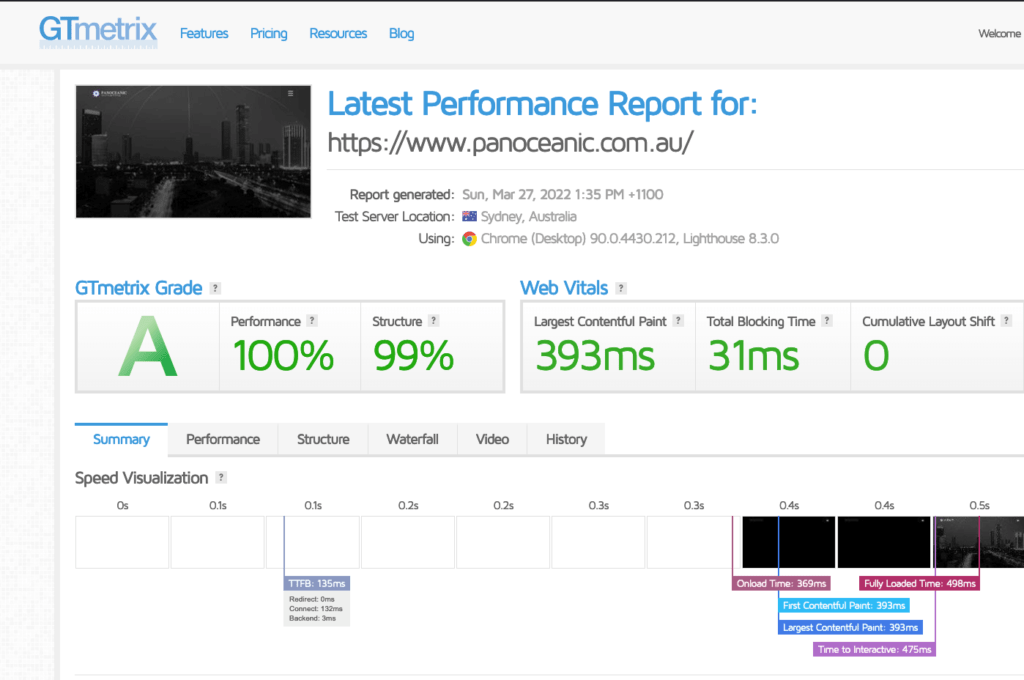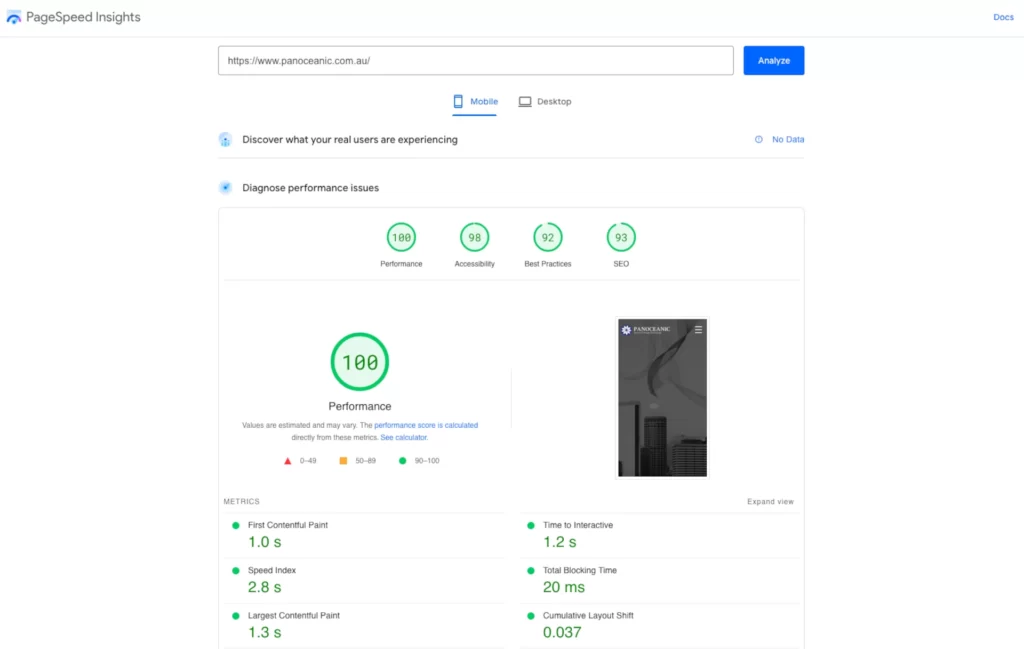How Page Speed Can Make or Break Your Website

Seconds count when it comes to website page speed. But why is this important?
Put simply, the faster your website loads, the better the user experience and the more time potential customers spend on your site. This, in turn, increases your sales and SEO.
What is website page speed?
It is the amount of time it takes for your web pages’ content to be downloaded from their hosting server and displayed in a user’s browser.
The Lowdown on Page Speed Load Time
- A 1-second delay reduces customer satisfaction by 16%.
- 1 in 4 visitors abandon a website that takes over 4 seconds to load. The ideal speed is 2 to 3 seconds.
- Web pages loading within 2 seconds have an average bounce rate of 9%, whereas pages loading in 5 seconds have a bounce rate of 38%.
- 40% of visitors wait no more than 3 seconds before abandoning a website.
- An eCommerce website that makes $100,000 a day can lose $2.5 million a year in sales due to a 1-second delay.
- 79% of shoppers who have an unsatisfying website experience are less likely to buy from that website again.
Source: WebsiteBuilderExpert
Website Page Speed and SEO
The slower your website, the higher the user bounce rate. High bounce rates affect SEO because search engines interpret this as users not finding your content useful or interesting. So search engines rank your website lower.
Website page speed is one of the ways Google ranks websites. This means that decreasing page load time increases your SEO success.
A custom designed website optimised for SEO and developed by experts experienced in implementing fast-loading web pages helps ensure both quick load times and good SEO for your website.
What You Can Do to Improve Website Page Speed
There are many things you can do to improve your website. A good website adviser can suggest or assist you with the following:
Start by testing your website page speed
There are simple online tools that provide insights on page speed and offer tips to improve performance.
GTmetrix and Google Page Speed Tool are good examples you can use yourself to bench mark your website’s page speed score.
Other alternatives include:
All the above tools will provide actionable steps on page speed improvements.
However, keep in mind that sometimes there must be a compromise between beautiful design and page speed. For example, adding custom fonts to your website and other design elements can decrease your website’s page speed.
Thus, your mobile page speed score could be lower compared to how fast your website pages load on a desktop computer etc.


Invest in good web hosting
Ideally, a web hosting provider should offer an uptime guarantee of 99.9%.
Shared web hosting is affordable and offers good accessibility and scalability. Then when you’re ready for the next level, virtual private servers and dedicated servers offer even greater speed, security and bandwidth.
A good web host can offer a web cache manager on the server. An example of a cache management solution, is LiteSpeed Web Cache Manager (LScache).
LScache increases page speed by creating a copy of your website. Whenever customers visit your site, the copy of your web pages is loaded – a much quicker process than loading your website each time from scratch.
Utilise a CDN
A CDN (Content Delivery Network) is a network of servers distributed across the globe, meaning you’re not relying on one server to deliver all your site’s content to visitors spread around the world. A CDN also increases your website’s redundancy capabilities.
Maintain your website’s database
A well-maintained website database operates quickly, efficiently and securely. Good database maintenance can only be performed by experts familiar with the system who can ensure the right processes, such as backups, are in place.

Good database maintenance also increases website page speed by deleting the bloat that accumulates over time on a database.
Update PHP version
PHP (Hypertext Preprocessor) is a scripting language used to develop websites and updating the PHP version on your web hosting server will increase performance because it communicates with resources more efficiently. However, not all websites are developed with PHP and therefore this my not be applicable.
Optimise your website’s multimedia
The more images and videos you use and the greater their file size, the slower your website loads.
Remove any unnecessary image files and balance the lowest file size with the most acceptable quality. We recommend to convert images into webp format, this gives you more control and reduces image size without greatly compromising image quality.
Optimise your website’s code
Code and plugins put load on a web server, a good web developer can ensure your website only consists of essential code and keep plugins to a minimum. They can compress code to the smallest possible size without impacting your site’s performance.

Delete unused content
Every part of your website affects page speed.
Without realising it, your website could be a lot slower due to:
- Unused code
- Unapproved or spam comments
- Multiple web page drafts and revisions
- Unwanted or deleted pages, posts and files
Don’t let poor website page speed hold your business back!
Ready to invest in a fast-loading website that turns visitors into clients?
Contact Panoceanic today to find out how we can help.
Want regular exclusive updates and content from Panoceanic?
Get in Touch
Let’s talk about how technology can transform your business
